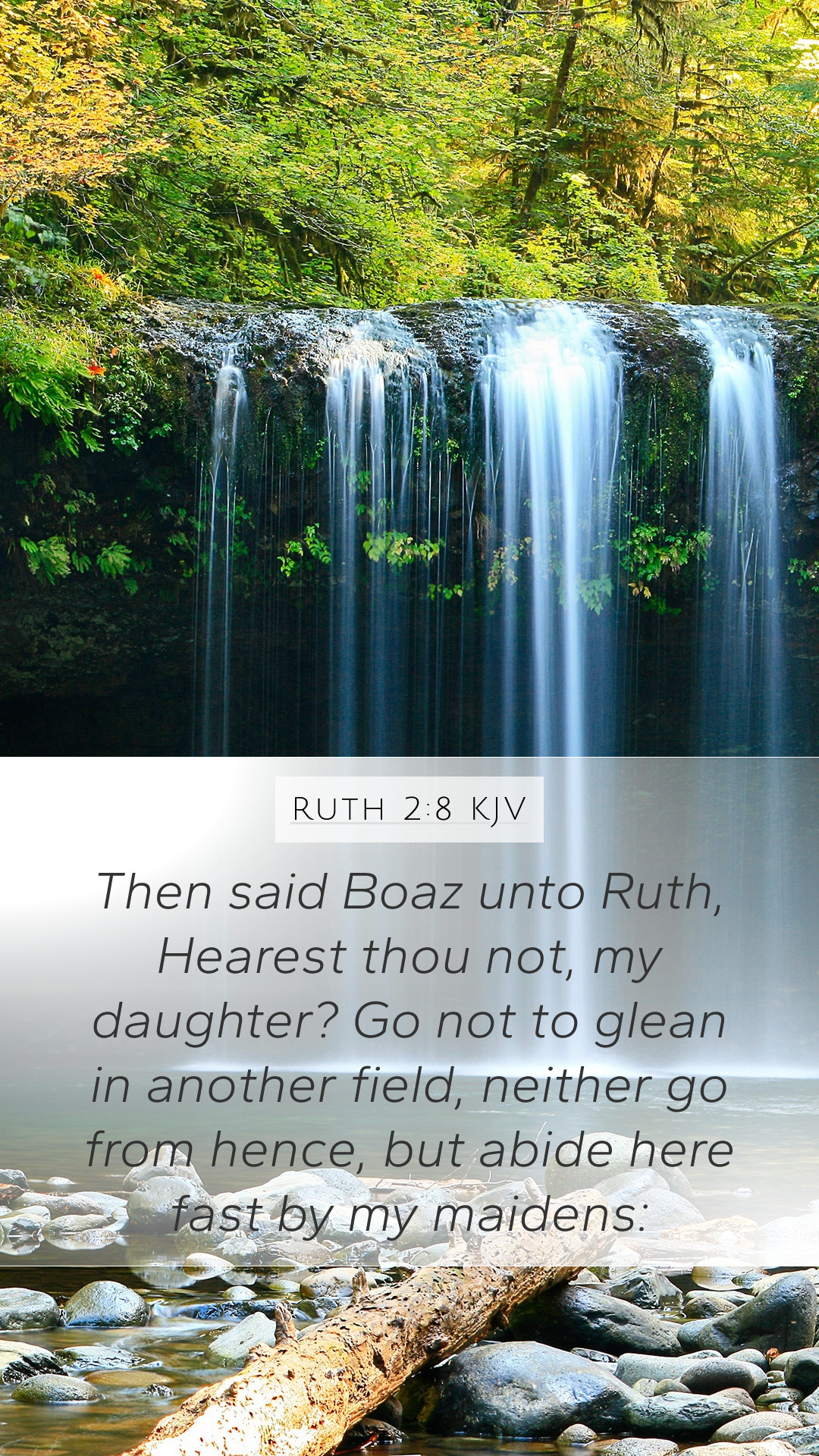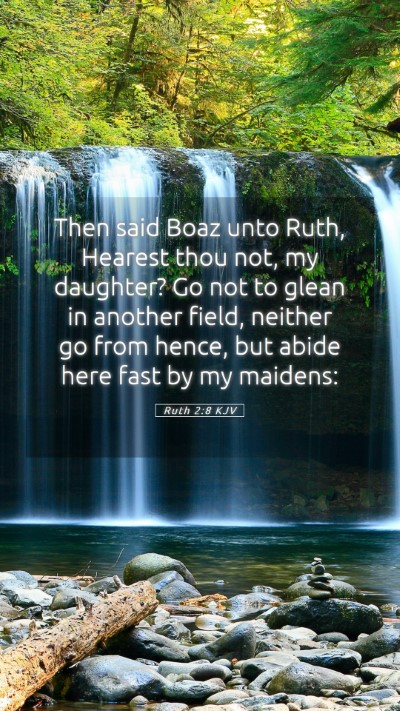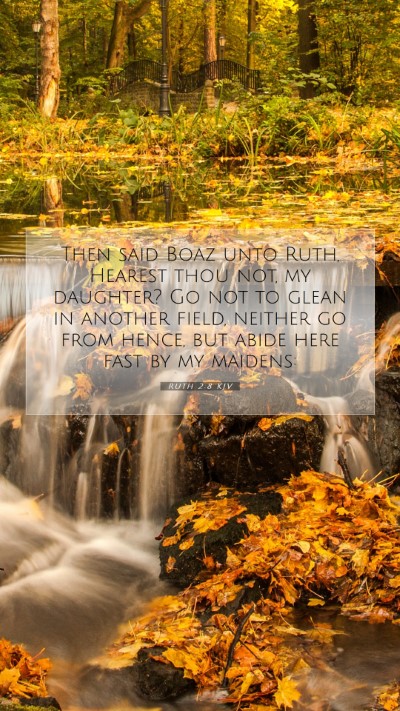Old Testament
Genesis Exodus Leviticus Numbers Deuteronomy Joshua Judges Ruth 1 Samuel 2 Samuel 1 Kings 2 Kings 1 Chronicles 2 Chronicles Ezra Nehemiah Esther Job Psalms Proverbs Ecclesiastes Song of Solomon Isaiah Jeremiah Lamentations Ezekiel Daniel Hosea Joel Amos Obadiah Jonah Micah Nahum Habakkuk Zephaniah Haggai Zechariah MalachiRuth 2:8 Meaning
What is the meaning of Ruth 2:8?
Then said Boaz unto Ruth, Hearest thou not, my daughter? Go not to glean in another field, neither go from hence, but abide here fast by my maidens:
Ruth 2:8 Bible Verse Meaning
Bible Verse Commentary on Ruth 2:8
Ruth 2:8: "Then said Boaz unto Ruth, Hearken, my daughter, go not to glean in another field, neither go from hence, but abide here fast by my maidens."
Understanding the Context
This verse unfolds during Ruth's remarkable journey from Moab to Bethlehem, where she endeavors to support herself and her mother-in-law, Naomi. When Boaz, a wealthy kinsman, encounters her, this verse signifies a pivotal moment of protection and provision.
Verse Meaning and Interpretation
- Boaz's Address to Ruth: Boaz calls Ruth "my daughter," which indicates a tone of kindness and familial care. This demonstrates his concern for her well-being, highlighting the importance of relationships and community support in biblical times.
- Invitation to Stay: His directive for her not to glean in another field suggests he seeks to secure her safety and encourage her reliance on him as a provider. This reflects God's providence through human relationships and generous actions.
- Gleaning Laws: This command relates to the Old Testament laws allowing the poor to glean leftover crops, which illustrates God's care for the marginalized. Boaz embodies this principle by ensuring Ruth can glean safely among his field's maidens.
Commentary Insights
Matthew Henry's Commentary
Matthew Henry emphasizes the significance of Boaz's protection over Ruth. He interprets this as a gesture of grace, demonstrating the kindness and respect Boaz afforded Ruth, which is a beautiful representation of covenant love.
Albert Barnes' Commentary
Barnes notes the cultural context of Ruth's situation, explaining how being a gleaner came with dangers. He highlights Boaz's role not just as a provider, but also as a protector within the community, which showcases biblical teachings on social justice.
Adam Clarke's Commentary
Clarke draws attention to the unfolding narrative of redemption in Ruth. He remarks that Boaz's treatment of Ruth foreshadows Christ's relationship with humanity, abundant in grace and understanding. This parallels how believers find refuge in Him.
Theological Implications
This passage invites deeper reflection on:
- Community Support: The necessity of establishing a safe space within communal living, just as Boaz creates for Ruth.
- Divine Providence: The belief in God's orchestration of events for our good, as illustrated in Ruth's fate.
- Inclusivity and Redemption: How God's love extends to all, regardless of status or nationality, as shown through Ruth's acceptance into the community.
Practical Applications
Boaz's encouragement for Ruth to stay can inspire modern believers to foster environments of support and safety in their own lives. Key lessons include:
- Show Kindness: Offer help to those in need within your community.
- Create Safe Spaces: Advocate for environments where all individuals feel welcomed and protected.
- Exercise Inclusivity: Embrace and include those who may feel marginalized.
Cross References
- Leviticus 19:9-10: Discusses the laws concerning gleaning and care for the poor.
- Deuteronomy 24:19: Highlights God's commands to aid the needy by leaving portions of harvest for them.
- Matthew 25:35-40: Jesus' teaching on serving those in need, seen as serving Him.
Conclusion
Understanding Ruth 2:8 reveals profound truths about God's love and provision through human actions. This scripture not only teaches us about kindness and community but also directs us towards applying Biblical principles in our daily lives. For those seeking Bible verse explanations and insights, Ruth 2:8 serves as a powerful reminder of the nature of God's provision and the blessedness of supportive community relationships.


